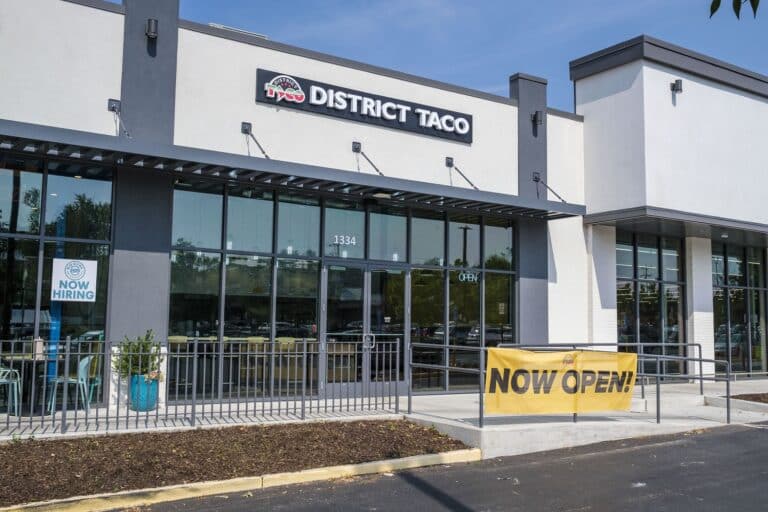Texas Roadhouse Franchise FDD, Profits & Costs(2025)

Texas Roadhouse, founded in 1993 by Kent Taylor in Clarksville, Indiana, is a leading casual dining chain known for its made-from-scratch food and lively atmosphere. Taylor envisioned a restaurant where guests could enjoy quality meals in a welcoming environment.
Famous for its hand-cut steaks, fall-off-the-bone ribs, and fresh bread with honey cinnamon butter, the brand has expanded rapidly.
Headquartered in Louisville, Kentucky, Texas Roadhouse began franchising early on, helping it grow to 753 restaurants across 49 states and ten countries by 2024. This includes Texas Roadhouse, Bubba’s 33, and Jaggers restaurants.
The chain’s unique selling point is its focus on quality, offering USDA Choice steaks hand-cut daily and made-from-scratch food, ensuring a memorable dining experience. The franchise expanded internationally in 2010, starting in the Middle East, showcasing the global strength of its franchise model.
Texas Roadhouse Franchise Initial Investment
It costs on average between $2,648,000 – $6,802,000 to start a Texas Roadhouse franchised restaurant.
This includes costs for construction, equipment, inventory, and initial operating expenses. The exact amount depends on various factors, including the type of restaurant you choose, the location, and whether the franchisee chooses to lease or purchase the property. Texas Roadhouse offers 2 types of franchises:
| Business Type | Initial Investment Range |
|---|---|
| New Texas Roadhouse Franchised business | $5,396,500 – $7,901,500 |
| Renovation Business | $3,894,500 – $6,388,500 |
We are summarizing below the main costs associated with opening a Texas Roadhouse franchised restaurant. For more information on the costs required to start a Texas Roadhouse franchise, refer to the Franchise Disclosure Document (Item 7).
| Type of Expenditure | Amount (Low – High) |
|---|---|
| Franchise Fee | $40,000 |
| Leasehold/Building Improvements (New Build-out) | $2,500,000 to $3,300,000 |
| Architectural/Engineering/Site Evaluation | $190,000 to $280,000 |
| Builders Risk and OCP Insurance | $5,000 to $12,000 |
| Performance Bonds (New Build-out) | $14,000 to $38,000 |
| Furniture, Decor, and Fixtures | $290,000 to $370,000 |
| Equipment (New Build-out) | $1,100,000 to $1,300,000 |
| Signs | $80,000 to $150,000 |
| Insurance | $60,000 to $140,000 |
| Initial Inventory | $38,500 to $62,000 |
| Supplies | $20,000 to $35,000 |
| Smallwares | $50,000 to $70,000 |
| Computer Hardware/Software/POS System | $220,000 to $250,000 |
| Marketing and Promotional Materials | $1,000 to $10,000 |
| Training Costs/Opening Assistance | $90,000 to $139,500 |
| Licenses, Permits, Incorporation | $120,000 to $300,000 |
| Liquor Licenses | $1,000 to $300,000 |
| Utility and Telephone Deposits | $5,000 to $50,000 |
| Other Pre-opening Costs | $130,000 to $255,000 |
| Additional Funds (3 months) | $442,000 to $800,000 |
| TOTALS (New Build-out) | $5,396,500 to $7,901,500 |
Texas Roadhouse Franchise Disclosure Document
Frequently Asked Questions
How many Texas Roadhouse locations are there?
As of the latest data, Texas Roadhouse operates over 700 locations, with approximately 69 of them being franchise-owned. The majority of Texas Roadhouse locations are company-owned, which allows the brand to maintain consistent quality and service standards across its restaurants.
This balance between company-owned and franchise-owned locations provides franchisees with the advantage of joining a well-established, company-driven brand while still maintaining some degree of local ownership and management.
What is the total investment required to open a Texas Roadhouse franchise?
The total investment required to open a Texas Roadhouse franchise ranges from $5,396,500 – $7,901,500 for the New Texas Roadhouse franchise business.
What are the ongoing fees for a Texas Roadhouse franchise?
For a Texas Roadhouse franchise, the ongoing fees include a royalty fee of 4% of gross sales and a marketing fee of 4.8% of gross sales. These fees contribute to ongoing support and national marketing efforts provided by the franchise, ensuring consistency and brand recognition across all locations. The exact percentages may vary slightly based on specific agreements.
To become a Texas Roadhouse franchisee, potential investors must meet specific financial requirements. These include a minimum net worth of $4 million and at least $1 million in liquid capital.
These financial benchmarks are set to ensure that franchisees have the necessary resources to cover the initial investment, manage operational expenses, and navigate any potential challenges that arise while establishing and running a Texas Roadhouse location.
Who owns Texas Roadhouse?
Texas Roadhouse is a publicly traded company, listed on the NASDAQ under the ticker symbol TXRH. While it is primarily owned by public shareholders, institutional investors hold a significant portion of the company’s stock.
Disclaimer
Disclaimer: This content has been made for informational and educational purposes only. SharpSheets is an independent educational resource and is not affiliated with, endorsed by, or representing any franchisor mentioned on this website. Where noted, figures are taken from the franchisor’s Franchise Disclosure Document (FDD). In some cases, we may provide independent calculations or estimates based on publicly available information. We do not make any representation or warranties with respect to the accuracy, applicability, fitness, or completeness of the information presented in the article. You should not construe any such information or other material as legal, tax, investment, financial, or other professional advice. Nothing contained in this article constitutes a solicitation, recommendation, endorsement, advertisement, or offer to buy or sell any franchises, securities, or other financial instruments in this or in any other jurisdiction in which such solicitation or offer would be unlawful under the franchise and/or securities laws of such jurisdiction.
All content in this article is information of a general nature and does not address the detailed circumstances of any particular individual or entity. Nothing in the article constitutes professional and/or financial and/or legal advice, nor does any information in the article constitute a comprehensive or complete statement of the matters discussed or the law relating thereto. You alone assume the sole responsibility of evaluating the merits and risks associated with the use of any information or other content in this article before making any decisions based on such information or other content.




